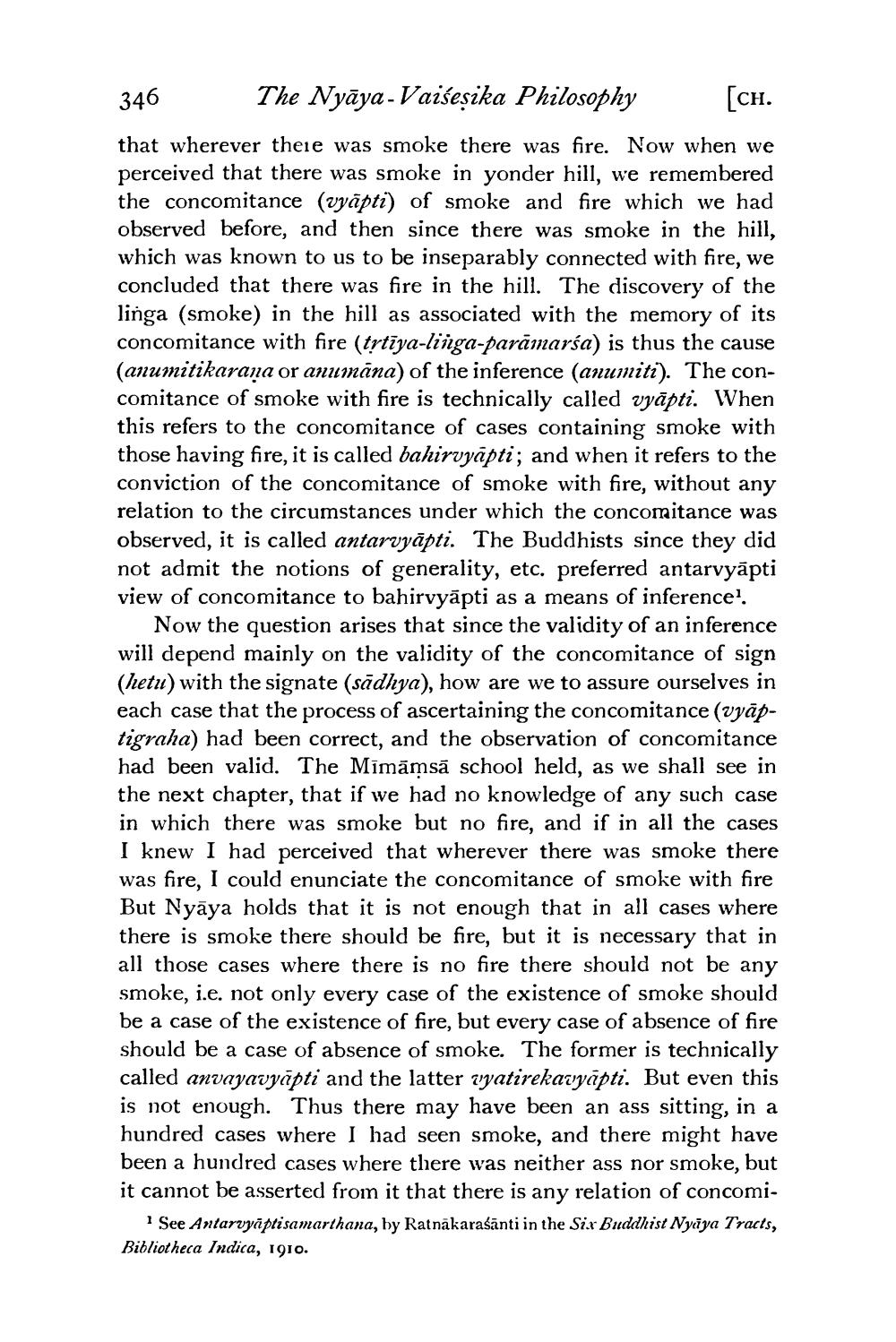________________
346
The Nyāya-Vaiseșika Philosophy
[CH.
that wherever there was smoke there was fire. Now when we perceived that there was smoke in yonder hill, we remembered the concomitance (vyāpti) of smoke and fire which we had observed before, and then since there was smoke in the hill, which was known to us to be inseparably connected with fire, we concluded that there was fire in the hill. The discovery of the linga (smoke) in the hill as associated with the memory of its concomitance with fire (trtīya-linga-parāmaría) is thus the cause (anumitikarana or anumāna) of the inference (anumiti). The concomitance of smoke with fire is technically called vyāpti. When this refers to the concomitance of cases containing smoke with those having fire, it is called bahirvyāpti; and when it refers to the conviction of the concomitance of smoke with fire, without any relation to the circumstances under which the concomitance was observed, it is called antarvyāpti. The Buddhists since they did not admit the notions of generality, etc. preferred antarvyāpti view of concomitance to bahirvyāpti as a means of inference?
Now the question arises that since the validity of an inference will depend mainly on the validity of the concomitance of sign (hetu) with the signate (sādhya), how are we to assure ourselves in each case that the process of ascertaining the concomitance (vyāptigraha) had been correct, and the observation of concomitance had been valid. The Mīmāmsā school held, as we shall see in the next chapter, that if we had no knowledge of any such case in which there was smoke but no fire, and if in all the cases I knew I had perceived that wherever there was smoke there was fire, I could enunciate the concomitance of smoke with fire But Nyāya holds that it is not enough that in all cases where there is smoke there should be fire, but it is necessary that in all those cases where there is no fire there should not be any smoke, i.e. not only every case of the existence of smoke should be a case of the existence of fire, but every case of absence of fire should be a case of absence of smoke. The former is technically called anvayavyāpti and the latter zyatirekavyāpti. But even this is not enough. Thus there may have been an ass sitting, in a hundred cases where I had seen smoke, and there might have been a hundred cases where there was neither ass nor smoke, but it cannot be asserted from it that there is any relation of concomi
See Antarvyāptisamarthana, by Ratnākaraśānti in the Six Buddhist Nyāya Tracts, Bibliotheca Indica, 1910.




